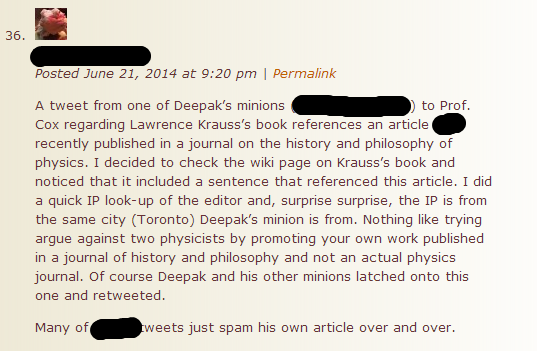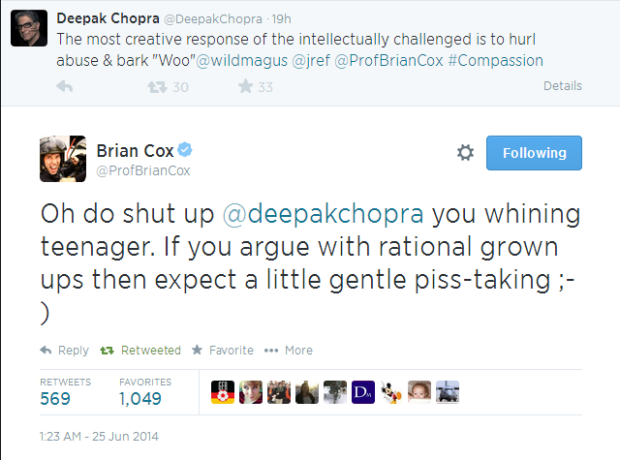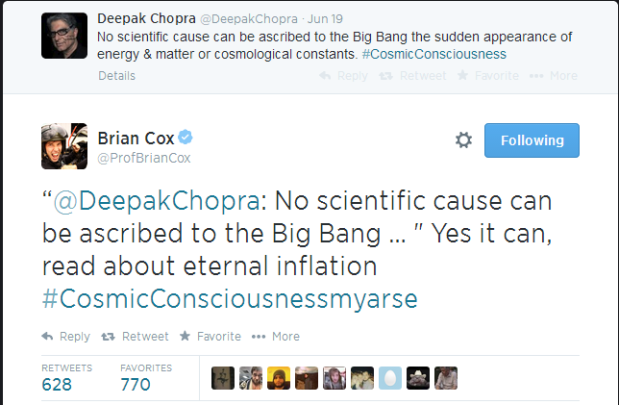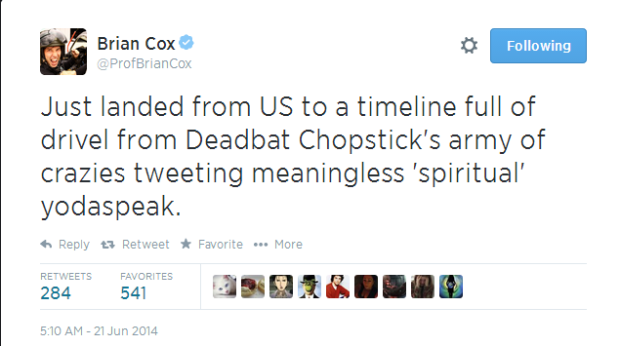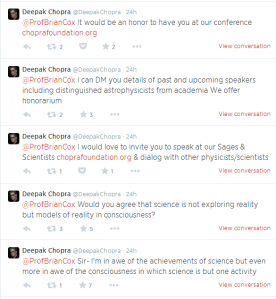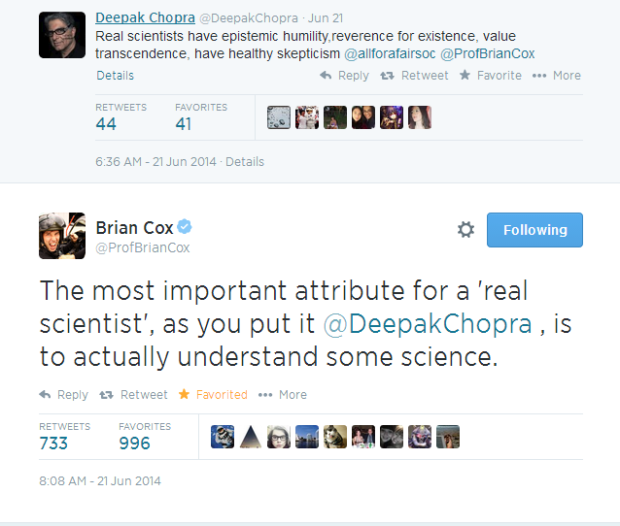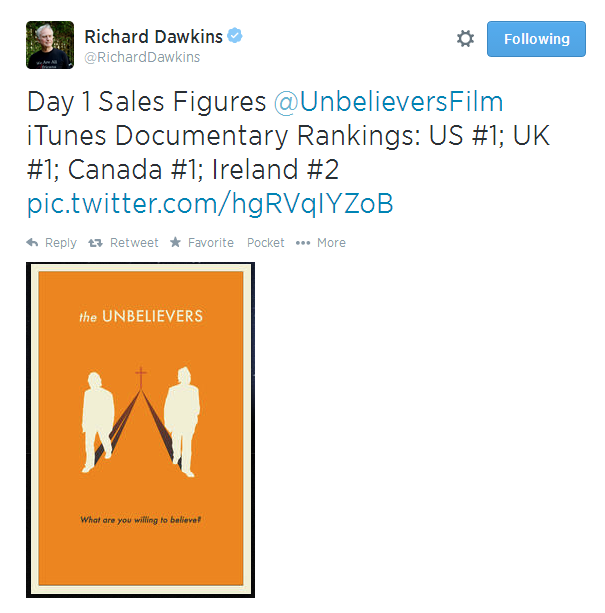A few days ago, a blog article was published by Matthew Francis called, “The Problem with Richard Feynman“. It got picked up by a few outlets, including 3 Quarks Daily. In the post, Francis argues that legendary physicist Richard Feynman should not be thought of as a hero – despite his significant contributions to science – because of some disreputable behavior and attitudes sprinkled over his 70 so odd years on earth.
I obviously agree that Feynman was flawed (so are you, dear reader, and so am I), but he certainly wasn’t flawed enough to deserve demotion from hero status, at least in my opinion (and also in the opinion of most commenters on the post). On the contrary, having studied Feynman pretty closely, I’ve always thought that one of the most remarkable things about him was that his heart seemed as big as his brain. One only needs to read the letter he wrote to his first wife, some 16 months after she passed away from tuberculosis, to get a sense of this. You might also watch this full-length documentary featuring interviews with several friends. The more I learned and continue to learn about Feynman, the more I feel a genuine respect, almost love, for the guy.
And so I had to respond to Francis’ bizarre post, which goes so far as to accuse Feynman of being a “sexual predator”:
…what if a hero was a sexual predator, someone who admitted to some really creepy behavior? What if this person also happens to be a Nobel laureate, a founder of a whole field of research, and an admirable thinker on a number of complicated topics? How do we deal with the two realities together?
In short, how do we cope with the problem of Richard Feynman?
Sexual predator? One has to assume – since Francis provides little evidence to support such a claim – that this accusation is in reference to Feynman’s admitted womanizing, chronicled in his autobiographies and elsewhere. The specific “facts” Francis lays out are as follows:
“Feynman pretended to be an undergraduate to get young women to sleep with him. He targeted the wives of male grad students. He went to bars and practiced a technique that isn’t so different from the reprehensible “game” of the pick-up artists (PUAs).”
That’s it. That’s all Francis points to. Those things make someone a sexual predator? Were the undergraduates underage? Were the wives of male grad students assaulted? Were the women in bars Jedi-mind tricked? Might it not be possible that women sometimes want sex, that Feynman was charming and seductive, and that these two forces occasionally found one another? Is Feynman not allowed to have or pursue sex (if that’s the criteria for being a sexual predator, who on earth isn’t?)? I’m not condoning affairs or leaving behind pregnant girlfriends (another accusation of Feynman strangely not covered in Francis’ article), but can any thinking person, with the limited knowledge we have about Feynman’s life, honestly equate these items to sexual predation? The answer is no, they can’t. Which means Francis either isn’t thinking or isn’t honest in this particular post.
With that out of the way, what about the fact that Feynman was sometimes “mean” to others? Shouldn’t such moral depravity disqualify him from being lauded as a hero? That seems to be the gist:
And let’s face it: Feynman frequently unkind toward men too. In his memoirs, he tends to spin things to make himself into the smartest one in the room, and to make even his friends look like losers by comparison. Excessive self-deprecation is one thing, but it seems a trifle unfair to take potshots at friends in a medium where they can’t defend themselves.
A trifle unfair to take potshots at people who can’t defend themselves: say, like accusing a dead scientist of being a sexual predator? This entire criticism – that Feynman was occasionally mean or derisive – is almost too silly of an accusation for grown ups to even bother with, but I have to wonder what memoirs Francis is reading and whether or not he’s missing a bit of the point. For example, when Feynman comes across as the “smartest one in the room” in his essays, it’s almost always as a foil to some pompous or stuffy authoritarian figure or self-proclaimed expert. We all know Feynman perpetuated the “myth of Feynman” and that many of his stories and essays were heavily exaggerated or apocryphal (another reason it isn’t entirely responsible to use them to impugn), but we also know that Feynman was intensely honest and quick to admit when he knew little about a subject or specialty: “I have approximate answers and possible beliefs and different degrees of uncertainty about different things, but I am not absolutely sure of anything and there are many things I don’t know anything about…I don’t have to know an answer. I don’t feel frightened not knowing things, by being lost in a mysterious universe without any purpose, which is the way it really is as far as I can tell.” To see just how far the above passage stretches reality, here are a few quotes literally picked out in under two minutes by flipping at random through Feynman’s “Surely You’re Joking, Mr. Feynman”, that contradict Francis:
At that particular time I was not quite up to things: I was always a little behind. Everybody seemed to be smart, and I didn’t feel like I was keeping up.
I was ready to put my hand up and say, ‘Would you please define the problem better,’ but then I thought, ‘No, I’m the ignoramus; I’d better listen.
I felt so stupid…He was always deflating me like that. He was a very smart fellow.
If Francis’ post had stuck with a premise like this: Feynman gets all kinds of attention for great things he did, but he was also human and did some bad things too and we have keep those things in mind – I wouldn’t have had a problem with it, and I don’t think many others would have either (other than that it’s maybe too obvious to merit a post). But to go so much further, to say that we shouldn’t consider Feynman a hero and – most egregiously – to accuse him of being a sexual predator, that’s where it all goes off the rails.
Francis’ final paragraph begins thus: “Feynman is no hero to us, brilliant as he was.” I’m not sure who the us is – the representatives of the website? – but Feynman is in fact a hero to me and to many others and will continue to be so. I’m not ignoring his flaws. I’m aware of them. Just as I’m aware of Dr. Martin Luther King, Jr.’s flaws. It’s just that I’m much more aware of these individual’s strengths, which are what we look to in heroes. Strengths are what inspire us. And inspiration is the reason we need heroes.
Richard Feynman’s rigorous defense of the scientific method, his intellectual integrity, his contagious enthusiasm for life and learning, his immense contributions to human knowledge – these qualities and more like them far overshadow the ill-advised romantic dalliances for a reason: they’re rare.

